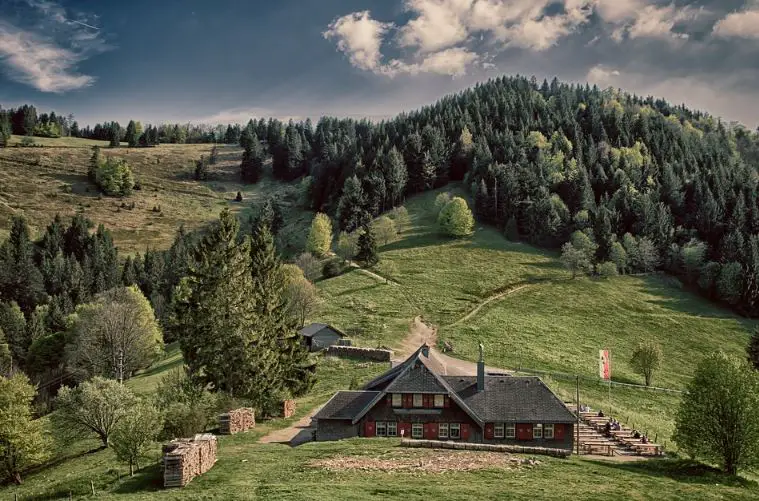What is the significance of Oktoberfest in Germany?
Post ByAdequate Travel
Summary
Oktoberfest is one of the most important and celebrated festivals in Germany. It is celebrated for over two weeks and is known for its traditional Bavarian culture, costumes, beer and German cuisine. This article will look into the history of the festival, its significance toGermany and the rest of the world.
Before embarking on your journey to germany, make sure to check the latest travel guidelines and entry requirements to ensure a smooth trip
Oktoberfest is an annual festival that holds great significance in Germany. It is a famous event known for its large-scale celebrations, weeks of beer consumption, traditional Bavarian music, and dancing. This festival originated in Munich, Bavaria in 1810 and has since become an integral part of German culture. The significance of Oktoberfest can be understood under different headings:1. Historical Background: - Oktoberfest originated as a celebration of the wedding between Crown Prince Ludwig of Bavaria and Princess Therese of Saxony-Hildburghausen, held on October 12, 1810. - The festival was organized as a horse race, which was enjoyed by locals. - Over time, the horse race transformed into a grand carnival featuring different attractions, food, beer, and entertainment.2. Cultural Celebration: - Oktoberfest is deeply rooted in German culture, showcasing traditions, clothing, and cuisine specific to Bavaria. - Traditional clothing, such as lederhosen for men and dirndls for women, is commonly worn during Oktoberfest. - Visitors can experience Bavarian customs like the Schuhplattler dance, which involves slapping the knees and shoes rhythmically. - The festival also exhibits Bavarian crafts, music bands, and cultural performances, providing a platform to preserve and celebrate local traditions.3. Beer Culture: - Beer plays a significant role in Oktoberfest, as Munich is renowned for its breweries and quality beer-making. - Six major Munich breweries serve their special Oktoberfestbier, which is brewed exclusively for the festival. - The beer tents at Oktoberfest accommodate thousands of visitors, offering a variety of beer styles, including Helles (a pale lager) and Märzen (a darker and stronger beer). - Visitors can enjoy the famous beer in traditional beer steins, creating a unique beer-drinking experience.4. Economic Impact: - Oktoberfest attracts millions of visitors annually, contributing significantly to the German economy. - It generates revenue for the hospitality industry, including hotels, restaurants, and vendors. - Local businesses benefit as tourists flock to souvenir shops, traditional clothing stores, and craft stands. - The festival's economic impact extends to the agricultural sector due to increased demand for ingredients like hops, barley, and regional food products.5. International Attraction: - Oktoberfest has gained global recognition and attracts visitors from all over the world. - People travel from different countries to experience the vibrant atmosphere, unique traditions, and diverse cultural interactions. - International tourists embrace the festival's spirit by wearing traditional Bavarian attire, immersing themselves in German customs, and connecting with people from different backgrounds.In summary, Oktoberfest holds immense significance in Germany as a historic, cultural, and economic event. It represents a celebration of Bavarian traditions, showcases the country's rich beer culture, boosts local economies, and attracts an international audience.
Oktoberfest is an annual festival that holds great significance in Germany. It is a famous event known for its large-scale celebrations, weeks of beer consumption, traditional Bavarian music, and dancing. This festival originated in Munich, Bavaria in 1810 and has since become an integral part of German culture. The significance of Oktoberfest can be understood under different headings:1. Historical Background: - Oktoberfest originated as a celebration of the wedding between Crown Prince Ludwig of Bavaria and Princess Therese of Saxony-Hildburghausen, held on October 12, 1810. - The festival was organized as a horse race, which was enjoyed by locals. - Over time, the horse race transformed into a grand carnival featuring different attractions, food, beer, and entertainment.2. Cultural Celebration: - Oktoberfest is deeply rooted in German culture, showcasing traditions, clothing, and cuisine specific to Bavaria. - Traditional clothing, such as lederhosen for men and dirndls for women, is commonly worn during Oktoberfest. - Visitors can experience Bavarian customs like the Schuhplattler dance, which involves slapping the knees and shoes rhythmically. - The festival also exhibits Bavarian crafts, music bands, and cultural performances, providing a platform to preserve and celebrate local traditions.3. Beer Culture: - Beer plays a significant role in Oktoberfest, as Munich is renowned for its breweries and quality beer-making. - Six major Munich breweries serve their special Oktoberfestbier, which is brewed exclusively for the festival. - The beer tents at Oktoberfest accommodate thousands of visitors, offering a variety of beer styles, including Helles (a pale lager) and Märzen (a darker and stronger beer). - Visitors can enjoy the famous beer in traditional beer steins, creating a unique beer-drinking experience.4. Economic Impact: - Oktoberfest attracts millions of visitors annually, contributing significantly to the German economy. - It generates revenue for the hospitality industry, including hotels, restaurants, and vendors. - Local businesses benefit as tourists flock to souvenir shops, traditional clothing stores, and craft stands. - The festival's economic impact extends to the agricultural sector due to increased demand for ingredients like hops, barley, and regional food products.5. International Attraction: - Oktoberfest has gained global recognition and attracts visitors from all over the world. - People travel from different countries to experience the vibrant atmosphere, unique traditions, and diverse cultural interactions. - International tourists embrace the festival's spirit by wearing traditional Bavarian attire, immersing themselves in German customs, and connecting with people from different backgrounds.In summary, Oktoberfest holds immense significance in Germany as a historic, cultural, and economic event. It represents a celebration of Bavarian traditions, showcases the country's rich beer culture, boosts local economies, and attracts an international audience.
Suggested Questions
- Wartburg Castle, Eisenach: Horror Story, History & Paranomial Activities
- Schloss Belvedere, Weimar: Horror Story, History & Paranomial Activities
- Heidelberg Castle, Heidelberg: Horror Story, History & Paranomial Activities
- Teufelsberg, Berlin: Horror Story, History & Paranomial Activities
- Heilig-Geist-Spital, Nuremberg: Horror Story, History & Paranomial Activities
- Frankfurter Hof, Frankfurt: Horror Story, History & Paranomial Activities











